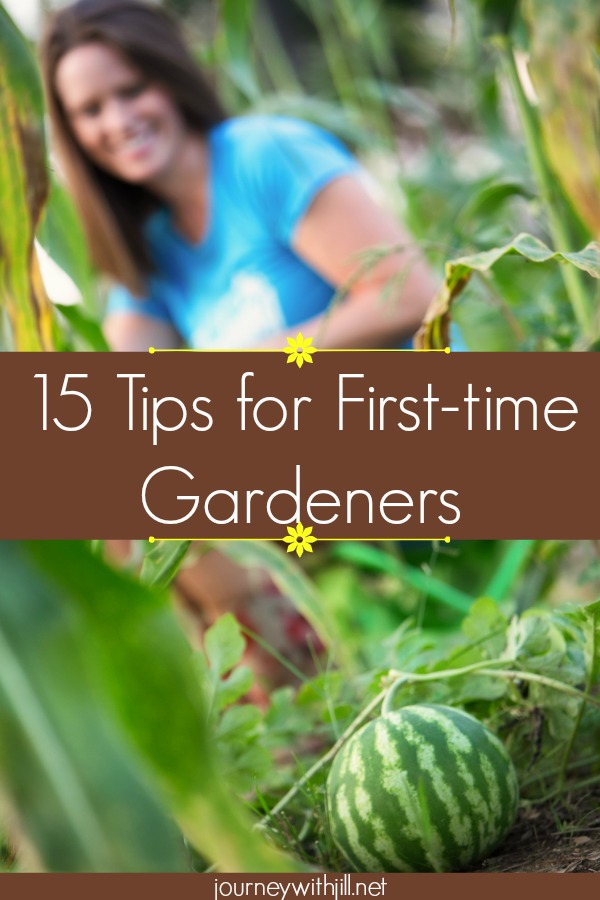15 Tips for First-Time Gardeners
When I started my garden in 2013, I was a lone ranger (or so it seemed). Almost no one I knew grew a garden, so I depended on Pinterest and garden books.
Looking back, how I wish I had a garden community — or even just one friend! — who shared my passion. It would have been so much nicer to text someone or ask a question online and get a real person’s response instead of relying on search engines and outdated gardening forums.
Thankfully, the garden world has changed quite a bit in the last several years, and garden communities are more commonplace. Since I opened my free Facebook group for beginning gardeners in early 2018, I’ve been amazed at how many of you jumped on board and have found a community with one another — a community I wish I had when I began.
I asked a question in this Facebook group in the early spring: “What ONE piece of advice would you give to first-time gardeners?” The answers the more veteran members of the group gave were just too good to keep to myself!
That’s why, on this very special 50th episode of the Beginner’s Garden Podcast, I share 15 tips that these gardeners shared with the group, along with my thoughts on each piece of advice. Click below to listen or read the highlights in the blog post below.
15 Tips for First-Time Gardeners
It’s okay to fail! Every failure this year will be an improvement next year.
Fear of failure prevents a lot of people from starting a garden, I think. But failure isn’t something to fear; it’s something to embrace as a learning opportunity. It’s unlikely your entire garden will fail, unless you completely neglect it. So enjoy what works and adjust what doesn’t for next season.
No garden is perfect. Plant it and learn from your own mistakes.
It’s easy to get discouraged when we see Instagram photos of beautiful, perfectly manicured gardens, but understand you’re seeing the highlights. We all have weeds. We all deal with pests and diseases. We all face failures of one kind or another. Keep at it and don’t expect perfection. Enjoy what you have!
Don’t overdo it. Start Small.
It’s easy to want to plan a big garden, planting everything you can dream of. But in mid-summer the work, the heat, the weeds, and the bugs can start to wear on you. The last thing you want in your garden efforts is discouragement. It’s better to start small and have some success than to start too big and throw in the towel.
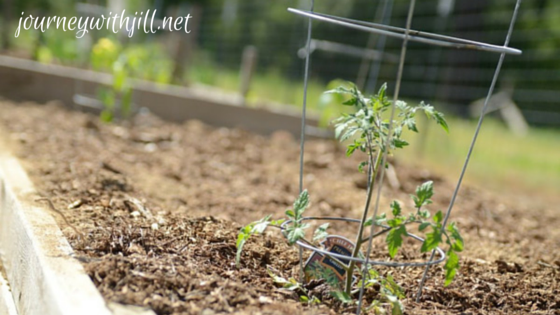
Start with a small garden that is really well-tended. Your success will be motivating!
One reason why starting small is such a great idea is that when you tend to a small garden that’s doable for you, it will motivate you to do more! But, having some experience, you can add on with care and strategy. I’m just one example of a gardener who has added to my garden as I gained experience. Keep your view on the long-term — enjoying a plentiful harvest and a rewarding experience year after year.
Start big. See what works and what doesn’t work and then make a better plan the next season.
On the flip side, maybe you have extra time or extra space. You could take up the thought of throwing everything in the ground and see what works. Understand that this is a more laborious approach, but as long as you’re prepared, you could learn quite a bit that first season to help you adjust for future years.
Work on improving your soil
While it’s easy to focus on what to plant, when to plant, and how to get your vegetables and fruit to grow, don’t neglect the place they’ll call home — the soil. Giving priority to soil health isn’t only an investment for this season; it will pay dividends in years to come.
Related: Building Healthy Soil
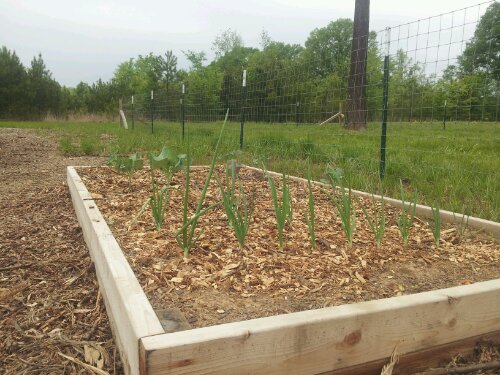
Build a raised bed. It’s far easier to amend the soil.
Speaking of soil health, it’s much quicker and easier to control the soil fertility in a raised bed. While it is possible to amend soil in a ground bed, depending on the ground, this could take years. With proper soil in raised beds, you could be looking at a far greater harvest your first season. Personally, I do both. I enjoy the greater growth of crops in my raised beds, but I also work on building healthy soil for my ground beds, as I plant crops that need more space.
Related: 7 Common Raised Bed Gardening Mistakes and How to Plan Your Garden Space
Stay proactive!
It’s easier to keep ahead of weeds, pests, and diseases when you’re out in your garden almost daily. Don’t worry; you don’t have to work in the garden every day, but at least you can keep an eye on it and can stay ahead of issues that arise.
Be patient! Don’t rush nature.
Average last frost dates are helpful, but I’ve found that watching nature gives me good clues on when to plant my early summer crops. For example, if weeds aren’t sprouting in my garden, most likely the seeds of my warm-weather crops won’t, either.
Related: Basics of Growing Seeds — Interview with Mike at the White Harvest Seed Company
Don’t transfer your plants too early.
Even if your average last frost date has passed, not all plants are ready to be transferred into the garden. Tomatoes, for example, do best when you wait until the nighttime temperatures stay consistently in the 50s. Peppers do not begin to thrive until daytime temperatures remain in the 80s. Your plants will get a better head-start in the garden if the conditions awaiting them are ideal.
Related: When to Plant What: Guide to Getting Your Crops in the Ground at the Right Time
Be sure the last frost is really the “last frost.”
Many experienced gardeners err on the conservative side when it comes to planting out their summer crops. They wait until two weeks past their average last frost date. While I prefer to watch nature (because some years I can plant earlier), it’s always possible for a cold snap to threaten crops. The last thing you want to do is lose your well-tended seedlings (or your expensive transplants) in one night!
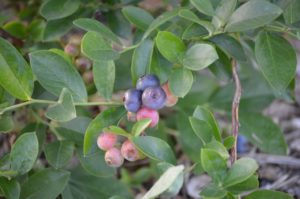
If you’re even considering asparagus (or other perennial planting), plant it now!
This is good advice for any perennial plant that takes a few years to begin bearing. Grapes and many strawberries take two seasons to fruit, asparagus will not be ready to harvest until the third year at the earliest, blueberries trickle each season but get their full harvest in the third year, and fruit trees take longer. So if you have plans for any of the perennial crops like these, make plans to get them in your garden.
Keep up with weeding! Before you know it, it gets away from you and that can be very overwhelming.
It’s easy to overlook the small weeds in the garden, but before you know it, they can take over. You’ll especially find their growth accelerated right after a rain and as the daylight hours lengthen. Although I hand-pick many of my weeds, I use a Rogue Hoe for larger jobs and between rows.
Related: My Five Favorite Garden Tools
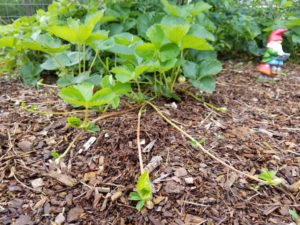
Mulch early and often.
The best way to keep up with weeding is to prevent most of the weeds in the first place, and I’ve found mulch to be the number one way to do that. Whether you use wood chips like I do or another method such as straw, hay, pine needles, or grass clippings, a thick layer of mulch will drastically decrease the amount of time you will spend weeding your garden.
Related: 4 Types of Mulch You Can Use in Your Garden and Weed Control Starts Early
Find the light.
One of the most common mistakes beginning gardeners make is planting their garden in a shady area. Megan, a member of the Facebook group, found this to be true and shared her experience: “We live on a farmstead that has been in my husband’s family for 70 years. When we moved there and started our first garden, we used the old garden spot. It has so many trees around it, all my plants were pale and spindly. We took a few years off. This year’s garden is moving to a place with ample light.”
Whether you’re a first-time gardener or an experienced gardener always on the lookout for new tips, I hope you’ve found these pieces of advice helpful! What would you add to the list? Comment below! And if you’re not a member yet, click here to join my free Facebook Group, the Beginner’s Garden Shortcut.
Do you get overwhelmed with garden planning?

Subscribe here for my best tips to plan your garden in just 7 days -- all for FREE.
Plus, I'll send you my "In the Garden E-mail" on Fridays, periodic updates on garden resources relevant to you, and you'll receive access to my entire bank of free garden downloads!
You are also agreeing to our privacy policy.

